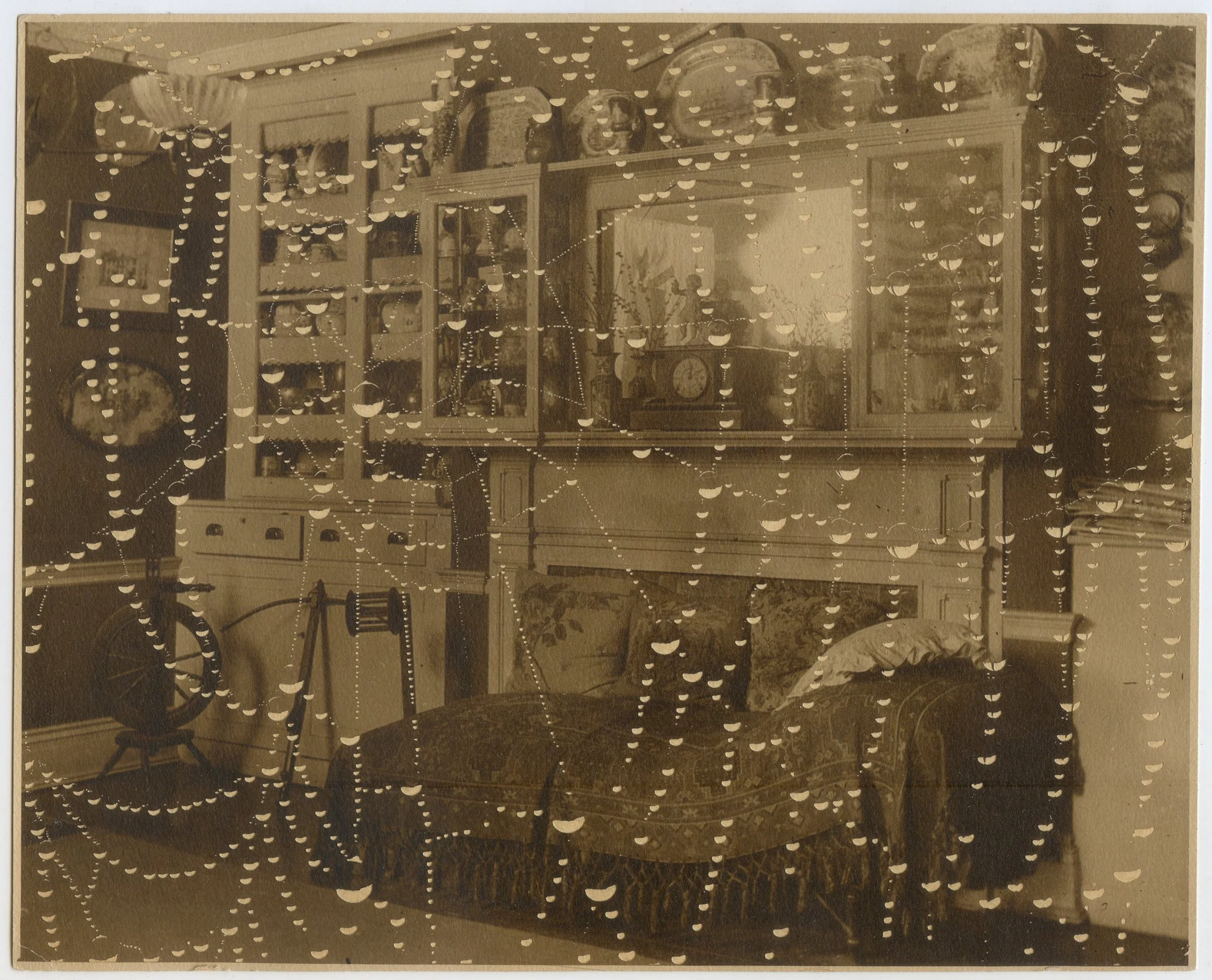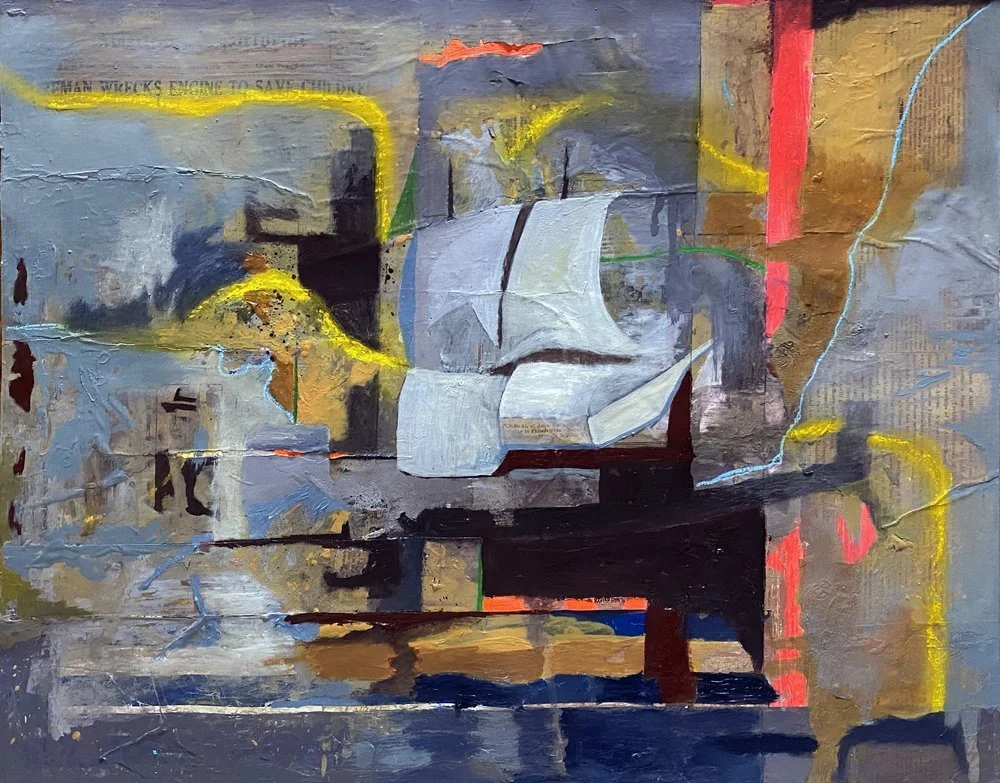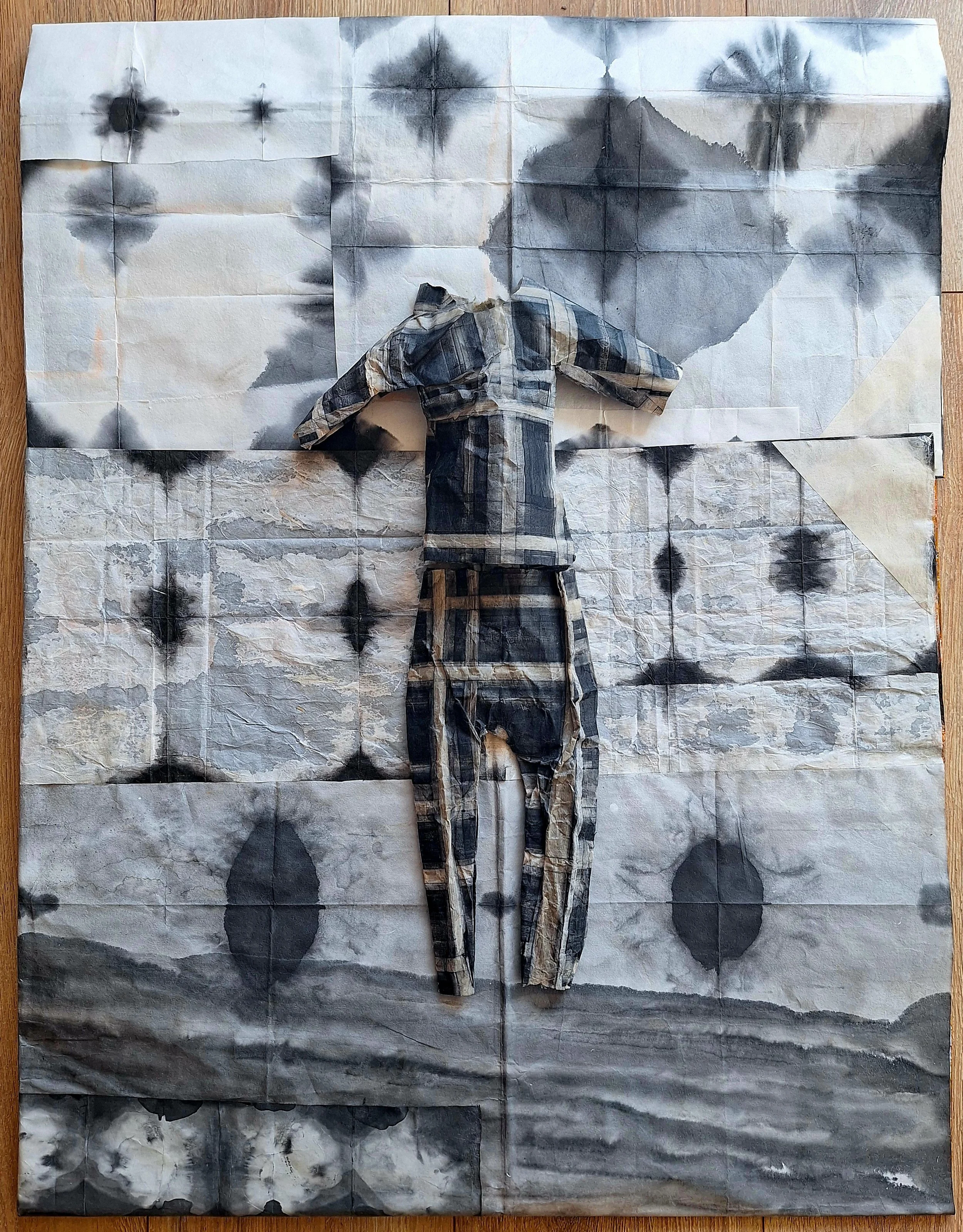Lunch Break – “Acts of Self Consumption”
“Lunch Break” is our regular poetry column. Look out for insightful appreciations of contemporary poems from around the world. For this edition, columnist Lim Xin Hwee examines the paradoxes of survival in “Acts of Self Consumption” by Singaporean poet Ally Chua. Sign up for notifications here.
‘Acts of Self Consumption’ by Ally Chua
What does it mean to consume the self? In ‘Acts of Self Consumption’ by Ally Chua, it means going against the wisdom of survival. Knowing that something is bad for you, but still wanting it. Acquiring it, and then asking yourself, at what cost?
Dahui Wang - Looking Glass (2021)
Image description: A mirrored illustration of a person embracing a black featureless figure in a manner similar to a clinch. The color of the image on the left is a reddish hue whereas the image on the right is a negative teal color. Both images have a cluster of threadlike worms crawling out of the head of the person tackling the dark figure.
The speaker opens the poem with a fact about cardiopulmonary resuscitation, commonly performed on drowning victims. While performing such a life-saving procedure, it is perfectly normal for the victim’s ribs to break, but the person administering the CPR has to keep going. This knowledge causes the speaker to “[live] in fear / of saving” because she is essentially hurting the person she is saving out of love. Every act of resuscitation in the speaker’s life “demands / a sacrifice in return”, and then, later in the poem, the speaker finds herself in the position of a drowning victim.
Before she depicts her own drowning, she explains a manoeuvre in boxing. The speaker employs boxing jargon when she says, “to set up a clinch / I must move / close enough for a knockout”. Interestingly enough, clinches executed by boxers look like hugs. It is incredibly poetic for a ‘hug’ to be the final move before the knockout blow is dealt. It directly opposes the danger of CPR, where you hurt someone to save them. Here, you bring someone into your intimate space in order to hurt them. The speaker’s confusion towards being saved and loved or loving and saving stems from the existence of such contradictions.
As the text moves down the page, it moves ever so slightly to the left, perhaps evoking a sense of pressure in the progress. The poem’s shape also resembles a shore, supposedly the one where the speaker resurfaces at the end after drowning. After being pulled out of the water, she comes “face to face” with her unnamed saviour as if she’s being clinched by a fellow boxer. “[C]ongratulations on the drowning,” says the person who saves the speaker, before asking her if being saved is what she wants. Again, her consternation returns, provoked by these words – it is not a good thing to have drowned, so what warrants the congratulations? The truth is that the choice between dying and losing a few ribs is not ideal. Nobody wants to drown. Yet, since it has happened, we can choose how we navigate it – either alone, or with someone we must trust.
Dahui Wang - Flood (2021)
Image description: A black-and-white illustration of a freeze-frame sequence of a person falling backwards. The various poses of this person appear very fluid, and the figures are surrounded by droplets of water. The furthest figure almost blends into the droplets of water.
‘Acts of Self Consumption’ thus locates the self not in what we have done to our loved ones, but in what we let them do to us. To drown or to be saved by someone who may involuntarily hurt us – which do we prefer? If you ask me, I choose to put my trust in my loved ones.
The poem ‘Acts of Self Consumption’ by Ally Chua was first published in the Quarterly Literary Review Singapore.
Lim Xin Hwee has a keen interest in language and how people use it. She graduated from NTU with a degree in English and Linguistics. A member of the writing collective /s@ber, she has written many things, important and unimportant. She hopes to keep writing.
If you’ve enjoyed reading this article, please consider making a donation. Your donation goes towards paying our contributors and a modest stipend to our editors. Singapore Unbound is powered by volunteers, and we depend on individual supporters. To maintain our independence, we do not seek or accept direct funding from any government.












“Like the man who wears a vest saying negotiator in a hostage situation, I want one that says prioritizer.” Three poems by Satya Dash.